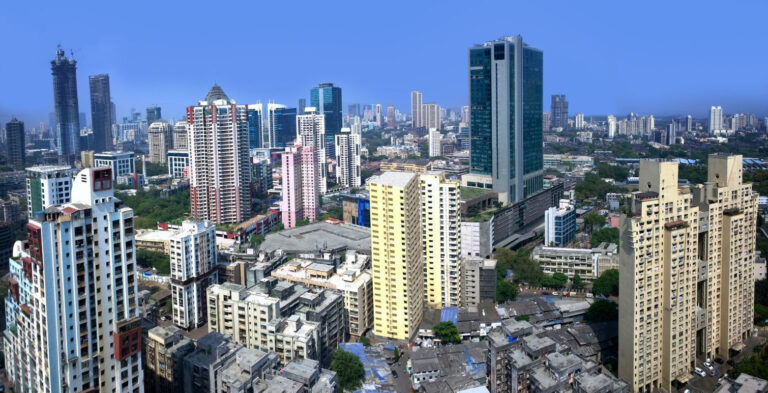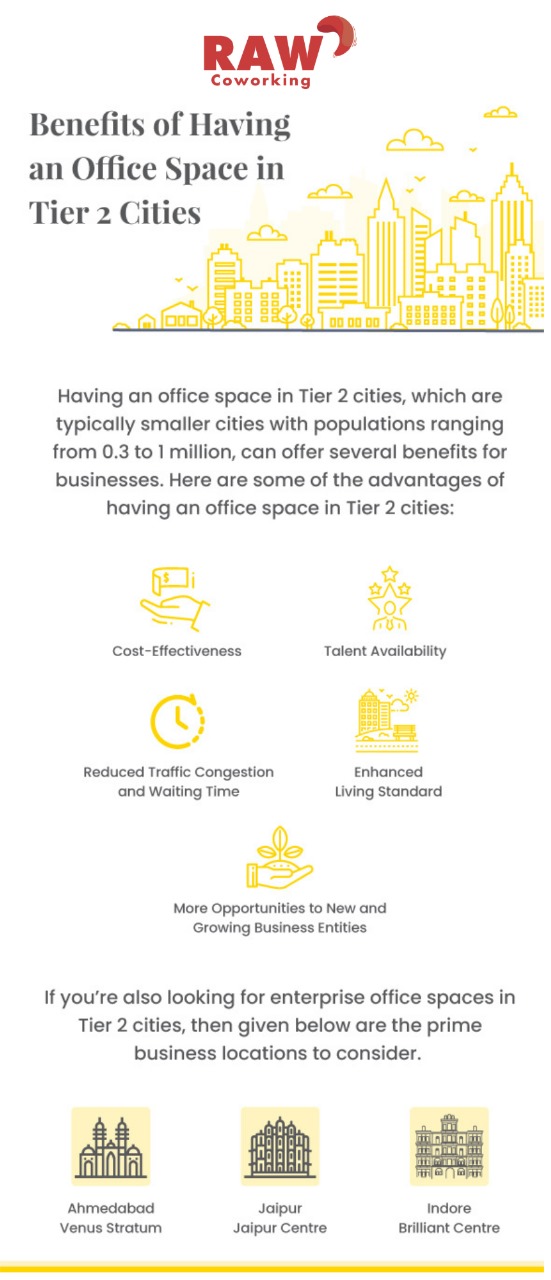Rise of Coworking Spaces in Tier-2 Cities of India

Coworking spaces offer a dynamic alternative to traditional office settings, providing entrepreneurs, startups, and established businesses alike with a vibrant and collaborative environment. These spaces are equipped with modern amenities, high-speed internet, and networking opportunities, all at an affordable cost. People are no longer necessarily shifting to the big cities to pursue their dreams and ambitions; in fact, there’s been a rise in a new trend where people are actually moving back to their hometowns after spending a few years in the city.
You might ask, though, why the trajectory changed. Yes, it’s a simple response. This is explained by the growth of coworking spaces in smaller cities, particularly in India’s Tier-2 cities. Not only have fantastic job possibilities resulted from this, but Tier-2 cities in India are now becoming business magnets.
These upcoming coworking trends have revolutionized traditional office spaces in small cities and opened gates for the evolution of the work environment
Reasons for the Rise of Coworking Spaces
1. Cost-Effectiveness
- Tier-2 cities offer significantly lower rents, utilities, and operational expenses compared to metros. This makes coworking spaces an attractive proposition for businesses seeking to optimize their budget.
- Startups and entrepreneurs, in particular, can benefit from the reduced costs associated with coworking spaces, allowing them to allocate their resources more efficiently towards business growth.
2. Growing Talent Pool
- Tier-2 cities are witnessing a migration of skilled professionals seeking a better quality of life and lower cost of living. This influx creates a readily available talent pool for businesses.
- Coworking spaces provide a platform for businesses to connect with and attract these talented individuals, contributing to their growth and success.
3. Improved Infrastructure
- Tier-2 cities are undergoing significant infrastructure development, with investments in high-speed internet connectivity, reliable transportation networks, and modern amenities.
- This improved infrastructure provides a vital foundation for a thriving business ecosystem and makes coworking spaces even more attractive for businesses seeking a professional and functional work environment.
4. Government Initiatives
- The Indian government’s Startup India initiative actively promotes and supports entrepreneurship in tier-2 cities.
- This includes providing financial assistance, incubation facilities, and mentorship programs. These initiatives create a conducive environment for the growth of coworking spaces, which cater to the needs of startups and entrepreneurs.
5. Changing Work Models
- The rise of remote work and flexible work arrangements has fundamentally changed work models across industries.
- Coworking spaces offer a solution for professionals seeking a dedicated workspace outside their homes, fostering focus and productivity.
- This flexibility and adaptability to changing work trends make coworking spaces a valuable asset for businesses and individuals alike.
Coworking Spaces in Tier 2 cities
The introduction of coworking spaces in Tier 2 and Tier 3 was highly driven by the number of local startups and entrepreneurs in these non-metro areas. With the rise of the coworking market in India, coworking growth in Tier-2 cities like Jaipur, Indore, Ahmedabad, and Lucknow also shot up. There has been a 45% increase in the demand for enterprise-managed office spaces, the majority of which came from Tier 2 and Tier 3 cities.
The flexible workspaces in these non-metro regions provide individuals with the opportunity to advance in their careers while staying in their small cities.
Moving further, let’s explore the reasons behind the business boom for startups, multinational firms, and young employees at the threshold of their new careers.
The Future of Coworking in Tier 2 Cities
The future of coworking spaces in tier-2 cities is incredibly bright. As the demand for flexible workspace solutions continues to grow, coworking spaces are poised to play an increasingly important role in the development of these cities and their thriving business ecosystems. This growth will be driven by factors such as:
- Increased awareness of the benefits of coworking spaces among businesses and individuals.
- The continued expansion of high-quality coworking space offerings by established operators.
- The emergence of new and innovative coworking space models that cater to specific industry needs.
- Continued government support for entrepreneurship and the development of tier-2 cities.

Conclusion
The growth of tier 2 cities in India’s infrastructure and startup ecosystem is undeniable. Managed office spaces play a crucial role in this growth, offering entrepreneurs and businesses an attractive and conducive environment to thrive. With the surge of coworking spaces, the provision of high-quality workspaces, and the availability of short-term project solutions, tier 2 cities are becoming fertile ground for startups. Aspiring entrepreneurs should not underestimate the potential that these rising stars hold. Great ideas can emerge from unexpected places, and tier 2 cities offer a vibrant and cost-effective path to startup success. So, embrace the opportunities that await in these dynamic urban centers and embark on your journey towards building the next big thing in tier 2 cities.

